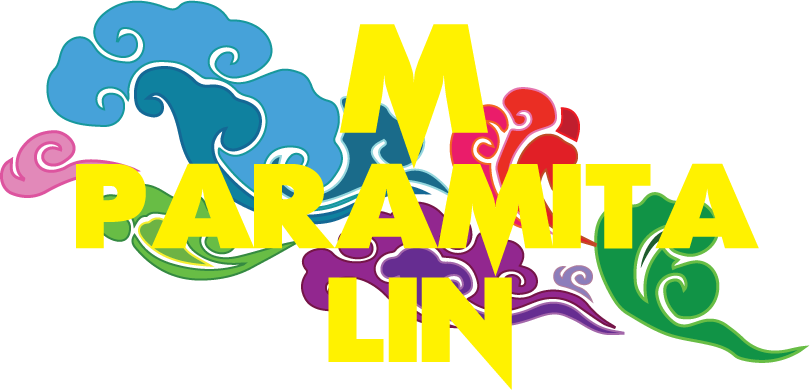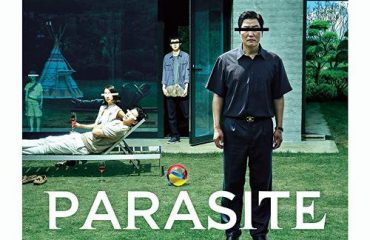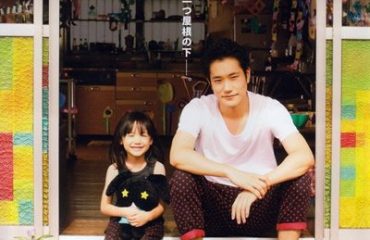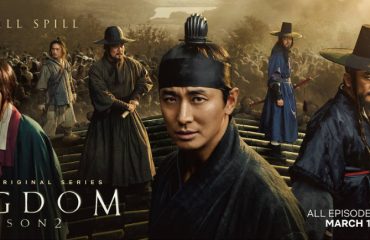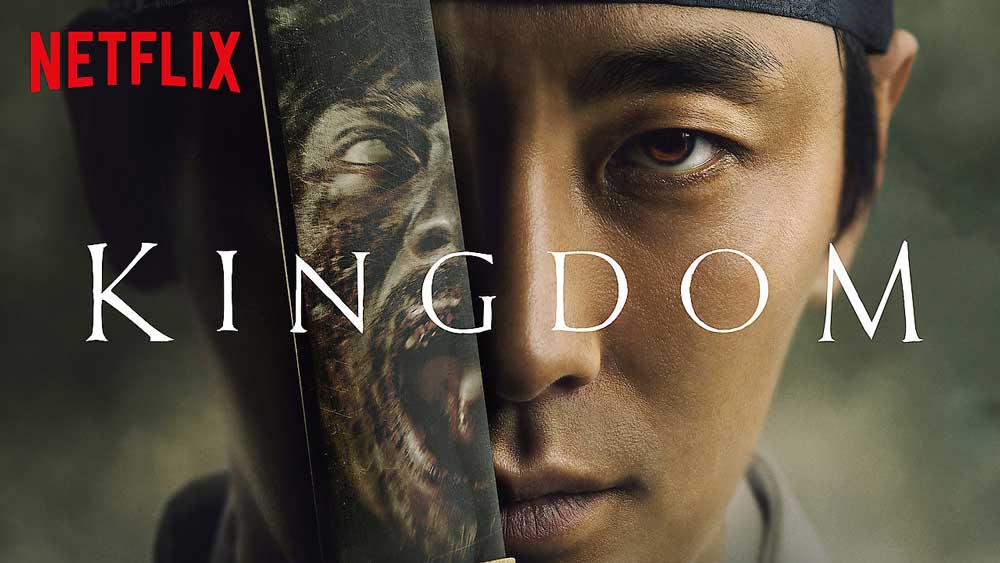
SPOILER WARNING
Before I begin, I have to admit that I’m finding it amusing that Netflix’s Kingdom has relied on people (including myself) to spread it around and make it viral, much like the zombie plague that is at the core of this drama. If that’s not synergy and a sign of late-stage capitalism, I don’t know what is.
Kingdom is a Korean zombie sageuk (historical drama) set in the 17th century Joseon era, which is one of the most inspired settings for a zombie story ever. (Yes, I’m aware Rampant came out last year but the web comic that Kingdom is based on has been out for years.) Zombies are frightening enough in modern times, even with our access to weapons and electricity, but zombies by torchlight or worse, moonlight, or even worse, no light at all (anyone who’s been to rural Asia knows the kind of darkness I’m talking about) adds an extra depth of horror.
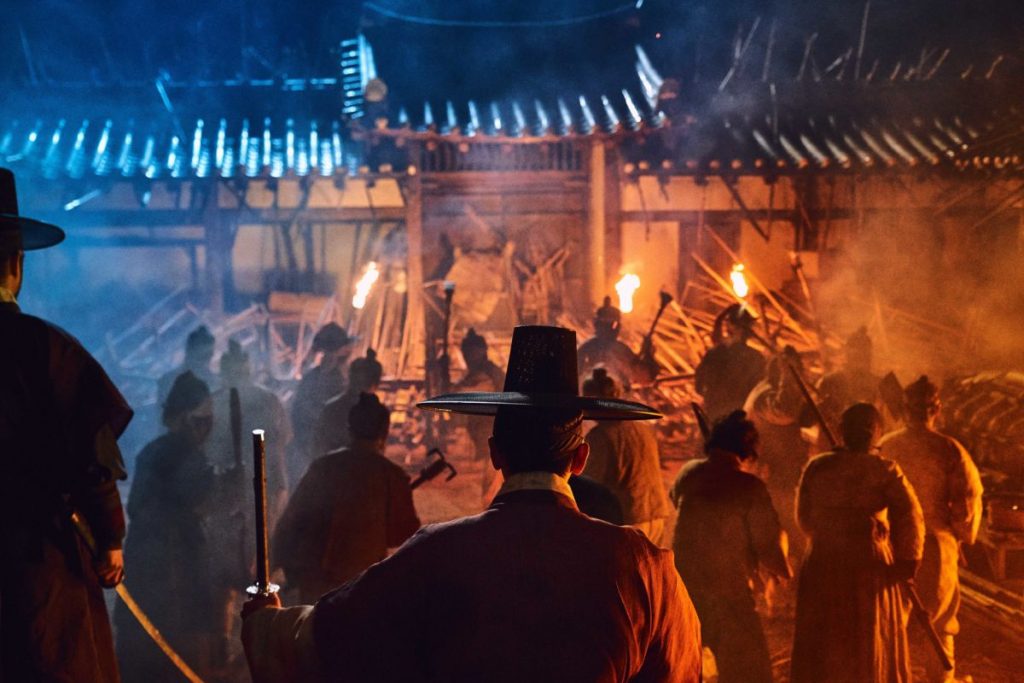
In Kingdom, the first zombie is the Joseon king, who is brought back to life by Physician Lee to give the pregnant Queen (Kim Hye-Jun) time to produce an heir and boot out the current Crown Prince (Ju Ji-Hoon), the son of a mere concubine. The Queen’s father is the Lord Councillor (Ryoo Seung-Ryong), the man responsible for forcing Physician Lee to administer a resurrection herb to the dead king, in service to his ambitions.
Zombies are horrifying not simply because they’re undead, but because they tend to represent what it would be like if our humanity were stripped away, leaving only hunger behind. And it’s hunger that drives most of the characters in this film, whether alive or undead. In the Lord Councillor’s case, it’s hunger for power and the zombie king could be seen as a metaphor for his insatiable ambition and greed.
In most sageuk stories, there’s a lot of anxiety over inheritance and proximity to power, and typical stories revolve around the rightful heir, wives and concubines jostling for favour, courtiers fighting with each other to influence the king, and so on. Some sageuk stories show how these power struggles aren’t just petty squabbles among aristocrats because they also have serious consequences for the peasants. Kingdom follows in this vein by having the zombie king kill Physician Lee’s assistant, whose body is then turned into soup by a well-intentioned hunter, Yeong-shin (Kim Sung-Kyu), to feed starving peasants. The contaminated body is what turns the peasants into zombies, thereby spreading the plague.
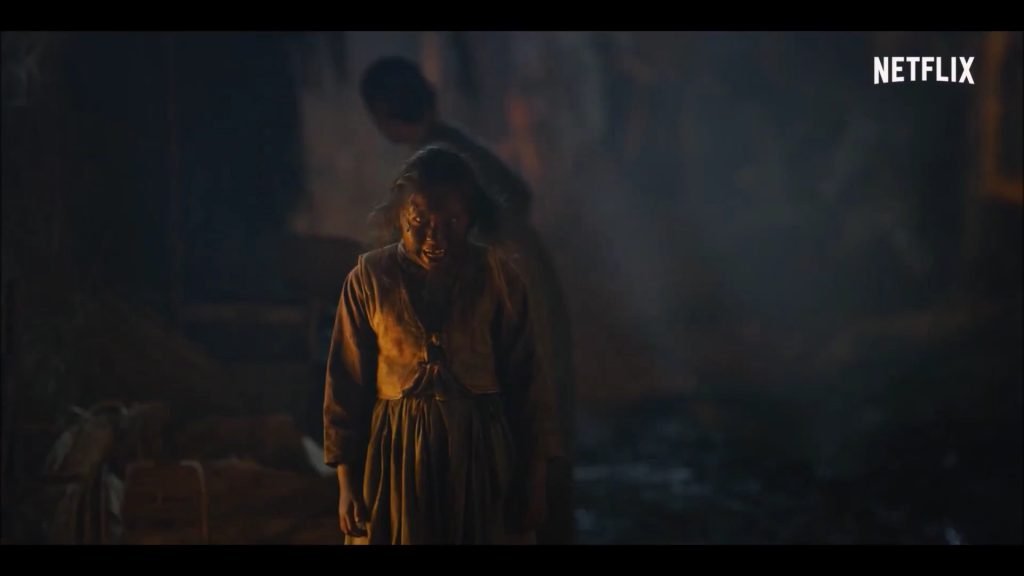
The drama makes it a point to show the aristocrats eating very well while the peasants starve, and the aristocrats are constantly scheming to let the peasants die from the zombie plague while they save their asses. But in the end, both the starving peasants and the power-hungry aristocrats are stripped of their ranks and identities when they become zombies. They simply become the physical embodiment of the hunger that they suffered when they were still alive.
Very few characters are exempt from this hunger. Crown Prince Chang starts off as the typical spoiled sageuk prince, and whoever cast Ju Ji-Hoon should get a raise because Ji-Hoon looks exactly like what you’d imagine a prince to look like. His delicate features, high cheekbones, and long neck–he’s like a painting come to life. It’s hard to believe that this beautiful man was the cute boy in The Princess Hours not too long ago. Or rather, it’s not hard to believe that he’s aged so well, but it’s hard, as in painful, to believe that I’m middle-aged.
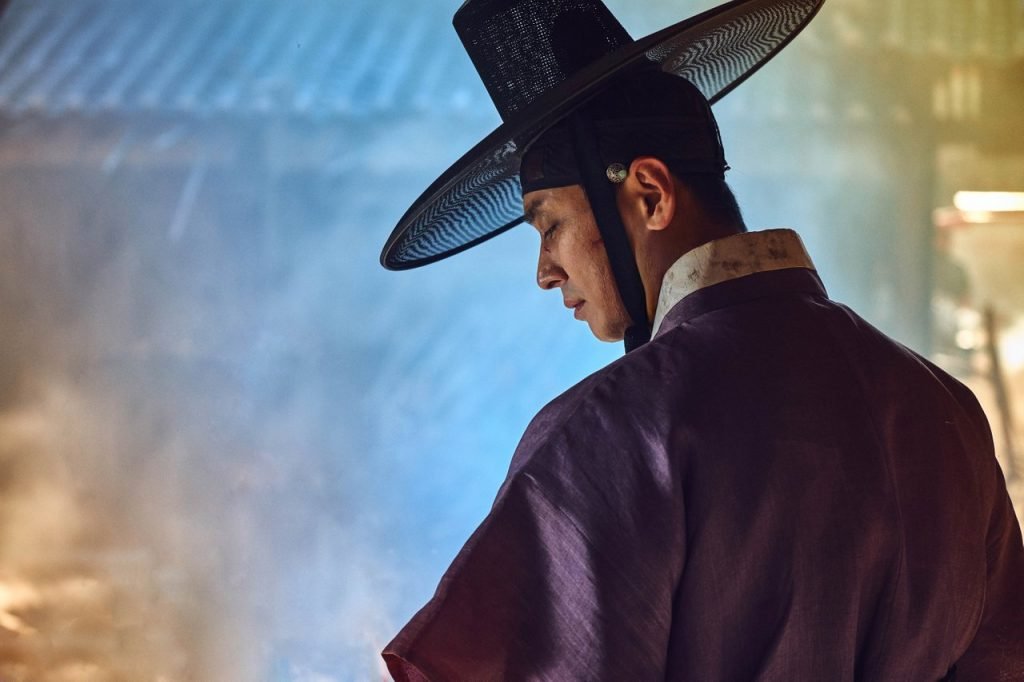
The Lord Councillor accuses him of conspiring with prominent scholars to seize the throne, and because the trope we’re used to in sageuk dramas is that the beautiful, naive prince is usually innocent, it’s a sour little surprise to find out that the accusation is true.
Then we find out that the prince isn’t doing this out of greed but because he doesn’t want to die, which is his fate should the Queen give birth to a male heir. It’s a hunger to simply survive, just like the hunger that the peasants have. Throughout the episodes, the prince struggles to be a decent person to distinguish himself from the greedy aristocrats that have been starving Joseon, but that hunger is always there.
Like events in real life, the plague situation worsens because no one really knows what to do. Well-meaning people who simply want to do the right thing end up unleashing the zombies, and selfish people who are only thinking of their own safety end up making things worse for everyone around them.
Twisting the intrigues of a sageuk into a zombie story keeps the whole zombie horror from becoming boring; the zombies become another pawn in the greater chess game of power that is being played. The drama is fun not because we’re wondering whether the zombie menace will be contained–at some point, all plagues die out–but how Crown Prince Chang can overcome it and take the throne.
One caveat about watching Kingdom: I tried not to watch Kingdom in one sitting because I’m sick and need to sleep, but it was hard to tear myself away. Now I have bronchitis although so far, no desire to eat another human being–but if I’m being honest, I’m not morally opposed to it, which is probably why I’ll be one of the first to succumb to the zombie plague.
